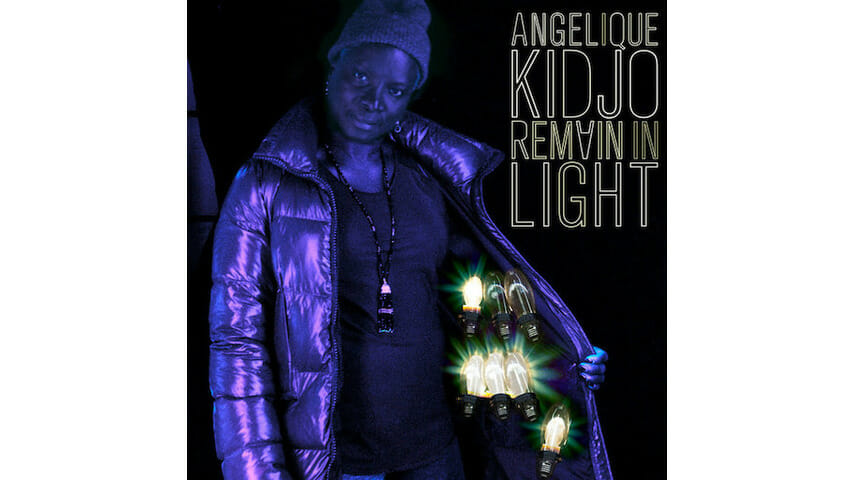Angelique Kidjo: Remain In Light

There is something supremely satisfying about Angelique Kidjo’s reimagining of Talking Heads’ Remain in Light, both in concept and execution. On the surface, it is simply one great artist—a giant and innovator of Afropop—paying tribute to one of new wave’s foundational bands. But it is also a response, almost 40 years later, from one of African music’s foremost living representatives to a landmark album deeply indebted to Afrobeat rhythms, and it has to be listened to as such.
One of the things that makes the album so satisfying is that it reverses the usual direction of borrowing, reinterpretation and the receipt of accolades for the same. It reverses the gaze of the global north, treating us to the adventure of Benin-born Kidjo exploring the Africa of Talking Heads and Remain in Light producer Brian Eno’s imagination.
-

-

-

-

-

-

-

-

-

-

-

-

-

-

-

-

-

-

-

-

-

-

-

-

-

-

-

-

-

-

-

-

-

-

-

-

-

-

-

-








































